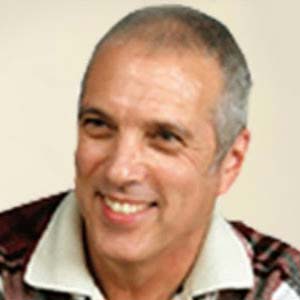Dudu Barak is a writer of Israeli folk songs. He was born in Jerusalem in 1948 and grew up in Rehavia Neighborhood. As a child, he took part in the “Pinat Hayeled,” choir, which sang on the radio. Through the choir, Barak got to know the poets Leah Goldberg, Miram Yalan Shtekelis, Anda Amir and Bilha Yafe who used to come to the studio.
His studies in a school in the Rehavia neighborhood of Jerusalem left their mark on Barak, and one can find common sayings and expressions of this period in his songs. The expression “Yeled Tov Yerushalayim” appears in his songs, “Kotel Beyerushalayim” and “Eretz Yisrael Yafa.” This expression originates from the morning formations at Barak’s school, Arlozorov. In the formation next to Barak stood a boy who had this expression written on his Kippa.
Another connection between his school years and his songs is the opening phrase of the song “Eretz Yisrael Yafa…Ne’ara tovat enayim…” This phrase comes from Levin Kipnis’s song “Eliezer and Rivka,” which Barak learned in his second grade. Kipnis’s song begins with the words: “Ne’ara tovat enayim, hati kadech hashkini mayim…” Additional idiomatic phrases such as “Mi pilel vemi Milel” and “Kol hatan and kol kala appear as well in Baraks’ song.”
Barak’s school was not part of the Rehavia neighborhood. He was sent to this school because of his mother, who wanted him to get to know the people and the ethnic groups outside Rehavia. The influence of this encounter may be seen in Barak’s use of “Mediterranean” melodies.
Some of his songs became idiomatic phrases. Two examples are the songs “Hofshi Vemeushar” and “Kotel Hamizrah.” Barak tells about these songs: “I didn’t mean to create idiomatic phrases when I wrote the songs. But when I saw a soldier in the street asking his friend, ‘Ma Shlumcha?’ (How are you doing?), and his friend replying, ‘Hofshi Vemeushar’ (Free and happy), I understood it was an idiomatic phrase. When they adopted the name “Kotel Hamizrach” in Kol Yisrael, I understood it was an idiomatic phrase. The idiomatic phrase ‘Eretz Yisrael Yafa’ existed before I wrote the song. But the song brought it into common language.”
Dudu Barak is both a poet and a Pizmonai, (lyricist). When asked what he thinks is more important, poetry or Pizmonaut (writing lyrics for songs), he answered: “The Pizmon (lyrics) is art combined with craft. It’s craftsmanship with a soul, with inspiration. Without its artistic value, the Pizmon is not a Pizmon. I wrote nine poetry books, three children books, and one book of Pizmonim (the last is the one with most of my known songs). These deal with every aspect of life, from love and hate to the holocaust.”
Another aspect found in the works of Dudu Barak are Hebrew lyrics written in a variety of musical styles. He writes mostly Hebrew lyrics to Mediterranean songs in Greek, Moroccan, Turkish and Spanish styles.
Barak contributed many songs to military bands: “Latzafon Be’ahava,” “Mi Ya’ale Behar Adonai,” “Sayeret Egoz,” “Shalom Al Yisrael,” “Eretz Yisrael Yafa,” “Prachim Bakane” (1970), “Tzohek Mi Shetzohek Aharon,” etc. One of Barak’s most beautiful songs is “Shuvi Bat Yerushalayim,” performed by Shoshana Damari. Barak is indeed a son of Jerusalem, and many of his songs refer to Jerusaelm. “I’m connected to Jerusalem, I’m one of its stones, I’m one of its wall hyssops.” Could Barak have written the same song about a different city, Tel Aviv for example? He answers in an interview with Phd. Talila Eliram in 1994: “I believe I could, but it wouldn’t come from my guts. It has to be a song you’re connected to, and I’m connected to the one and only Jerusalem. That’s where I could express my soul and the excess spirit, if it exists, in me.”


10 thoughts on “Kaminos”
Was Nicholas related to Alexander Saslavsky who married Celeste Izolee Todd?
Anyone have a contact email for Yair Klinger or link to score for Ha-Bayta?
wish to have homeland concert video played on the big screen throughout North America.
can organize here in Santa Barbara California.
contacts for this needed and any ideas or suggestions welcomed.
Nat farber is my great grandpa 😊
Are there any movies or photos of max kletter? His wife’s sister was my stepmother, so I’m interested in seeing them and sharing them with his wife’s daughter.
The article says Sheb recorded his last song just 4 days before he died, but does not tell us the name of it. I be curious what it was. I’d like to hear it.
Would anyone happen to know where I can find a copy of the sheet music for a Gil Aldema Choral (SATB) arrangement for Naomi Shemer’s “Sheleg Al Iri”. (Snow on my Village)?
Joseph Smith
Kol Ram Community Choir, NYC
שלום שמעון!
לא שכחתי אותך. עזבתי את ישראל בפברואר 1998 כדי להביא את בני האוטיסט לקבל את העזרה המקצועית שלא הייתה קיימת אז בישראל. זה סיפור מאוד עצוב וטרגי, אבל אני הייתי היחיד עם ביצים שהביא אותו והייתי הורה יחיד בשבילו במשך חמישה חודשים. הוא היה אז בן 9. כעת הוא בן 36 ומתפקד באופן עצמאי. נתתי לו הזדמנות לעתיד נורמלי. בטח, אבות כולם חרא, אומרים הפמינציות, אבל כולם צריכים לעבוד כמטרות במטווחי רובה!
משה קונג
(Maurice King)
Thank you for this wonderful remembrance of Herman Zalis. My late father, Henry Wahrman, was one of his students. Note the correct spelling of his name for future reference. Thank you again for sharing this.
Tirza Wahrman (Mitlak)
amazing zchuso yagein aleinu, he wrote the famous niggun Lefichuch that is sung in almost every Israeli Yeshiva